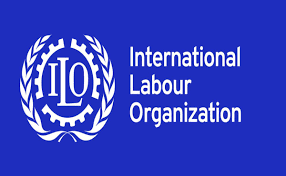The International Labour Organisation (ILO) has adopted its first-ever international labour standards aimed at safeguarding workers from biological hazards in the workplace. This historic move is expected to significantly improve health and safety conditions across various industries globally.
The adoption took place at the conclusion of the 113th session of the International Labour Conference (ILC) held in Geneva, Switzerland, on June 13, 2025. The new standards include a legally binding convention and a non-binding recommendation that provide a comprehensive framework for managing exposure to biological agents such as viruses, bacteria, parasites, and fungi in occupational environments.
According to the ILO, the new convention mandates all member countries to establish national policies and regulatory frameworks for preventing and controlling biological risks in the workplace. The policies must require employers to carry out risk assessments, enforce necessary preventive measures, and ensure that workers are properly informed and trained.
The accompanying recommendation offers detailed technical guidance on how to implement the convention. It addresses the modes of transmission—including airborne particles, physical contact, and vector-borne routes—while offering protocols for early warning systems, emergency preparedness, and employee training.
Describing the development as a major step forward, ILO Director-General Gilbert Houngbo said, “This is a landmark achievement in advancing global occupational safety. With this convention, we are better prepared to protect workers against future pandemics and everyday biological threats alike.”
Labour unions across the globe, including those represented at the conference, have welcomed the development, calling it a timely response to growing health and safety concerns—especially following the lessons learned during the COVID-19 pandemic.
The conference also touched on several other key labour issues. One of the highlights was the first formal discussion on setting international standards for decent work in the digital and platform economy. Delegates agreed on a draft framework that is expected to lead to a new convention and recommendation in 2026. These upcoming standards will focus on fair wages, occupational safety, social protection, data privacy, and dispute resolution mechanisms for gig and platform-based workers.
In another major decision, the ILC adopted a resolution to reduce informal employment, which affects a significant portion of the global workforce. The resolution urged member countries to implement reforms that would improve job quality, expand access to social protection, and create support systems for workers transitioning from informal to formal employment.
The ILO has been tasked with developing a global implementation roadmap to help countries achieve these goals.
Furthermore, the conference approved seven key amendments to the Maritime Labour Convention, 2006. These changes are aimed at strengthening protections for seafarers, particularly in the areas of violence and harassment prevention, access to medical care, and rights to shore leave and repatriation. The amendments also seek to ensure fair treatment of maritime workers in cases of detention or accidents at sea.
The resolutions adopted during this year’s conference are expected to shape the global labour landscape in the years ahead. With these developments, the ILO reaffirms its role as a key international body working to promote safe, fair, and decent working conditions across all sectors.
